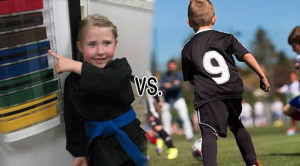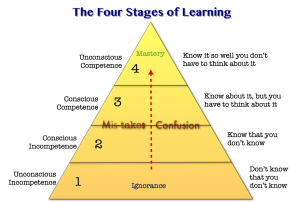I've gotten to hire multiple teenagers, and for what I would consider pretty good jobs. I am in a industry that tends to hire teens frequently, and have discussed the matter with many others that employee teens many times.
So why post this on a martial arts blog? Well, we train with and hire teens, and we want the best employees we can get :)
So, how would I recommend a teenager get their first (or second) job?
1 - Personality matters. More then anything else in a lot of cases. In the business world this is called being a "culture fit". It is easy to teach a person technical skills, much harder to teach them to be a good and motivated person. When in a group do you tend to elevate the group or slow it down by being a distraction? If something needs done do you do it, or ignore it until someone else does it?
2 - Any job pays you for the value you bring. If you bring more value, you can ask for more money in return. If you need to be constantly managed and given direction, you're not going to get very far. In any business a employee has to be worth more in value to that business then they get paid. Otherwise you aren't a good investment.
3 - The ability to work with anyone on anything is a huge value. Someone that bickers and gossips with others... they are a poison to a workplace and won't get very far.
4 - Your network is important. Jobs often come as a result of who you know, not just what you know. Again, technical skills are easy to teach, but a being a jerk is a hard thing to fix. Most employers will choose to hire someone they know, or someone that is recommended by someone they trust over a unknown. References on a resume are there for this reason. But a personal recommendation from someone trusted will carry more weight then most references. It's just the way we are wired, people will look at reviews for a movie, but a critics reviews will fall second to a friends recommendation.
5 - Everything you do matters. We live in a social media world, and employers will check you out. If we pull up your profile and see something we don't like, that's a hit against you. If you're friends list looks like a bunch of drug dealers you're not getting the job. On the flip side, if you're profile is good that's points for you.
6 - Have hobbies. Seriously, have hobbies. And Call of Duty and flipping water bottles doesn't count. School is important, but if all you do is what everyone else does you are just like everyone else. No one wants to hire a boring person. Every job I've gotten from the time I was 16 has been because of things I did outside of school. Between about 11-16 most people drop out of things, Be the one that doesn't and you'll be thankful you didn't and possibly land a great job as a result. Even if it's completely unrelated to the job, I got a software job and one of the differentiating factors was that I did martial arts and the "other guy" had no active hobbies.
7 - There is nothing wrong with working at McDonalds or other big chains. In fact, it's a great idea. Big Chains have something important down. Business systems. McDonalds is basically the text book case for developing solid business systems. Spending some time learning how companies that can scale to that size manage day-to-day operations is a great experience.
8 - If you want a good job, go for it. If you want a job that requires specific skills and is more rewarding, go for it. Earn that job. Just because you are young doesn't mean you can't get a job that makes you feel valuable. The youngest I've ever hired someone was at 14, and that was to help teach. They didn't show up with a resume out of the blue one day, they'd been training with me for a few years, they'd come early to work with the younger kids regularly. Get out and be involved in things and more skilled jobs are there if you look for them.
9 - Sales is a universal skill. From selling yourself as a potential employee to selling products or services to selling a proposal in a office job, sales skills are universal. If you understand sales you can succeed in most environments. If you want to sell anything you have to be trustworthy, likeable, helpful, professional and know what you are talking about.
10 - Know your strengths and weaknesses. A job will go well if it is both something you like doing, and something you are good at. It needs both to work. A job that is a bad fit for you isn't going to do you or the employer any good.
11 - Go after the job you want. There is a time to plaster your resume out everywhere you can find, but make sure it's positions you actually want. And the ones you want, make sure the employees knows you want "that" job, not just any job anywhere as long as it pays you. For me if I am hiring a instructor, I don't want to hire someone because they just need a paycheque. I want to hire someone that wants to teach martial arts, loves working with kids and believes in what we do and how we do it. Same goes for any employer.
12 - Develop skills in the area you want to work. It's never too early. So many successful people started on the path that got them to that success when they where really young. It's just like having hobbies, if you want to stand out as the best person to hire, you have to bring something that goes above what everyone else does.
13 - Don't be easily replaceable. If you do get a job and want to keep it, don't be easy to replace. Some jobs take a couple hours training and you're in action... if all you bring is the minimum required you can be replaced as easy as changing a lightbulb. Going above and beyond the basic expectations makes you much harder to replace and is what leads to advancement and promotions.
14 - Be reliable. One of the biggest concerns a lot of employers have regarding younger employers is reliability. Showing up late for a shift, calling in sick regularly, showing up with other things on your mind that interfere with doing your job. Pretty much every reference call I've done for someone their potential employees asks about their reliability and attendance. This might mean hitting deadlines, or simply being at work, ready to go and on time overtime. If you work for a business that business depends on you.




